January 17
Great buffet breakfast eaten outside overlooking the garden at the hotel.
Picked up by Hillary and driver and taken to the Lumbini Academy, a bilingual school for pre-kindergarten through 12-year olds, where students are taught not only English, but to read and write Burmese, which they otherwise would be able only to speak. We are shown around the classes by the administrator of the school and see everything from a pre-K duck, duck goose game
We go on to the house/ gallery of U Hla Win, who spends more than an hour showing us around and talking about his amazing collection of everything, including ancient ceramics, old valuable paintings, artifacts from monasteries, old solid wheels from oxcarts, and the work of modern painters he supports, which bulges from every wall and corner of the attractive old home. U Hla Win used to have a large gallery, but had to close it under the military rule. With the help of an American Buddhist/architect, Damon, he plans to expand his gallery at home and to reopen it to the public rather soon. We are hoping to meet Damon on our return trip to Yangon. U Hla Win used to be a pilot, but developed this passion for art. He is also a novelist and journalist who has been awarded recognition by the government. He’s a good example of Dotty’s efforts to put us in touch with people, even though she has never met him (she knows of him through Damon).
From here we drive a very short distance to Kyaik Kasan, a small pagoda Hilary’s mother goes to. It is fun to walk around this small, active pagoda in contrast to the fabulous, large Shwegadon Pagoda that we saw yesterday. Some 80% of the people in Myanmar (which, by the way, is pronounced, me-ah-ma) are Buddhist.
On the streets we pass, we see many people carrying umbrellas as protection from the sun. People also color their faces with a yellowish powder/paste, called, thanaka, made from wood, which serves both as protection from the sun and as a cosmetic. Stray dogs are both visible and audible. There is no visible sign of the military at all. Hillary has a quick lunch at a nearby Thai restaurant, but Carol and I, who are still full from our large breakfast, have only a drink.
We drive on from lunch to a day care center. What a surprise for Carol and me, who were expecting to see a place for the care of very young children. Instead, we are ushered into a building that houses the Support Group for Elderly Doctors and introduced to it’s 89-year old president, Dr. Myint Myint Khin, a retired gastroenterologist, who in turn introduces us to the group of elderly women doctors and professors, who have just finished their monthly lunch discussion. The organization is the brainchild of Dr. Myint Myint Khin, who says that older people may not always need financial support, but they certainly need the social and moral support that comes from being valued, especially by youth.
Her organization provides moral and physical support for its members, looks after their needs and also produces booklets on a wide range of topics. Dr. Myint Myint Khin is a force, with strong opinions on a wide range of issues that we were treated to in about an hour of private discussion. Surprisingly, we learned that women had long been valued in Burmese society and made up a very significant proportion of prominent members of every group except the military and politics. She attributed this to Buddhist views of equality. She was an outspoken critic of the military who had “incarcerated” the country for fifty years, and had no fear of speaking out, since there was nothing she felt they could do to her that would harm her or her reputation. She is hardly resting on her laurels and aims to extend the benefits for doctors to all elderly people, perhaps using public squares a day a week for the purpose. It would be foolish to bet against Dr. Myint Myint Khin. On anything.
We drove downtown and walked around Independence square, looking at some of the old colonial buildings and seeing the palm readers along the street. Driving on, we passed the Sule Pagoda and saw another Yangon lake. In another area, we parked and Hillary led us on a labyrinthine route, across a bridge through a market area and up some back stairs to a wonderful handmade textile shop called Yoya May, run by Peter, the mother of another Pre-Collegiate Program student, who will begin Carleton College in the Dallas. When we admired a design on a blanket and asked whether she had anything like it in a runner, she promised to have one woven and sent to us via Peter.
Walked back to the car and were driven to Yangon Diplomatic School, which houses Dotty and Jim’s Pre-Collegiate Program (PCP), which they started about ten years ago with a Burmese friend from Yale, who has since died. About 12-15 students are selected for the 17-month program each year from among 30-80 applicants. Students receive training in English and critical thinking. The program has a half-day-a-week service component and after a year, students are place in work internships, often in NGOs. Graduates are placed in universities in the US and Japan. At the school, I talked to a very impressive student, Aung Hein, who graduated from Earlham College, was awarded a Corro Fellowship and is now back teaching at PCP. He plans to teach a course on happiness next year, so I am giving him our copy of Travels with Epidurus and told him about Stumbling on Happiness, a great book by a Harvard psychology professor. We attended a dress rehearsal of three 1-act plays, written and performed by PCP students, which was extremely amateurish.
Drove in heavy traffic to Hillary’s apartment building, which houses some thirty apartments. Hillary has written a very nice paper about what a caring community residents of the building are. Technically, they rent the apartments, paying the government 63 cents a month, but the apartments are salable. Hillary’s mom prepared dinner for us in the small apartment that once housed eleven family members, and now is home to Hillary’s parents, her and her 27-year old brother P.L., who handles travel and other logistics on behalf of NGOs. Her father used to be a seaman, away for three months at a time, and is currently looking for work. Hillary’s grandparents lost a successful restaurant to the military government, and they and all six of her Mother’s brothers died in about a five year period that ended when Hillary was thirteen. Her parents gave us a calendar with monthly photos of Aung San Suu Kyi and we gave them a CD with American music. After a pleasant dinner, we were driven back to the hotel, once again rather exhausted.
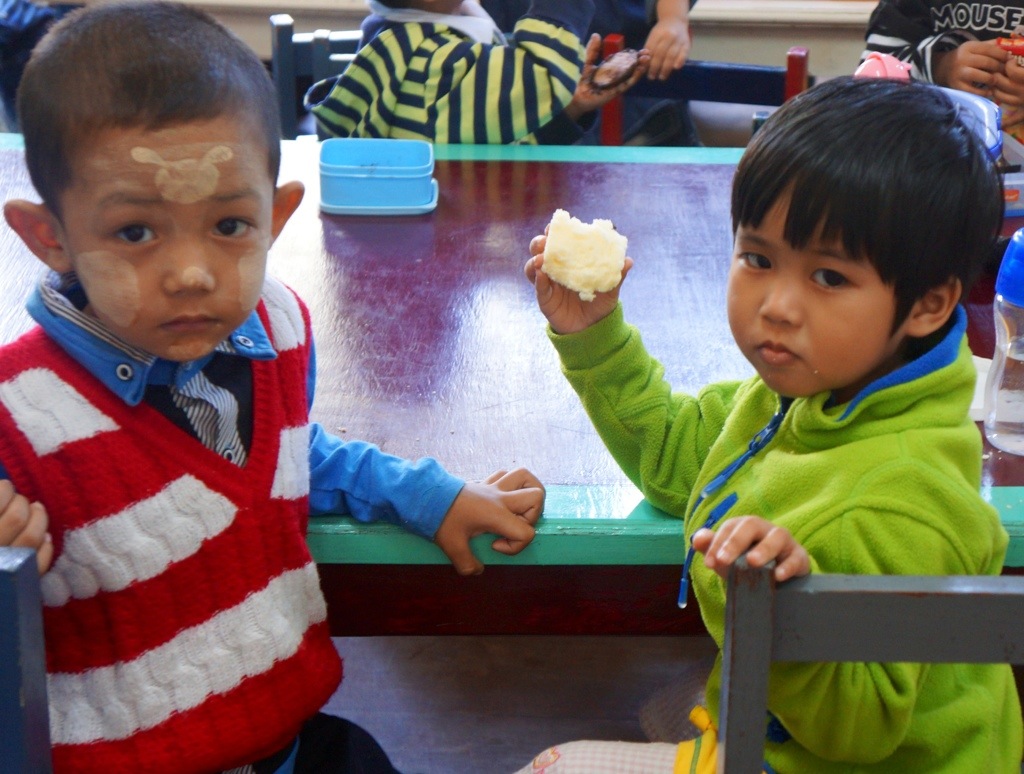
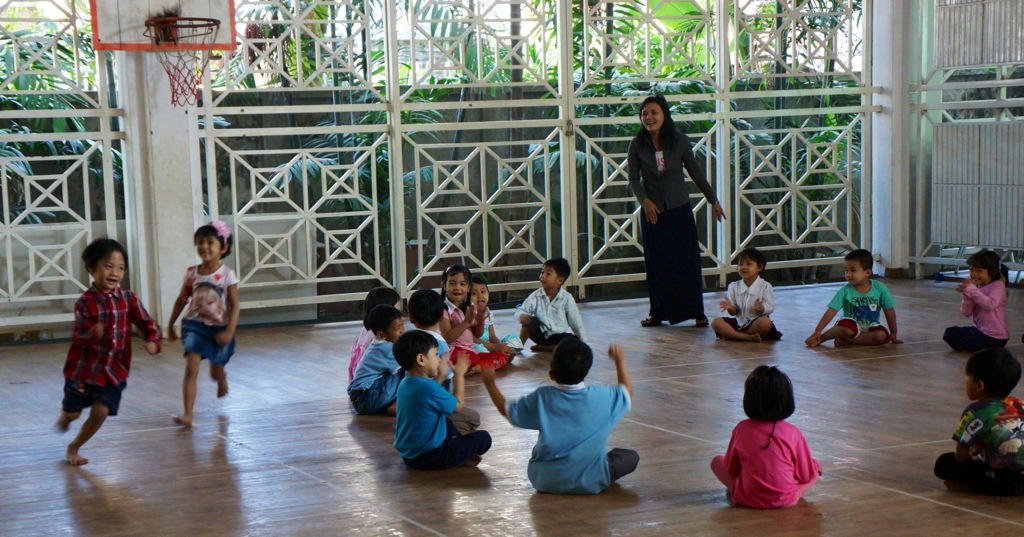
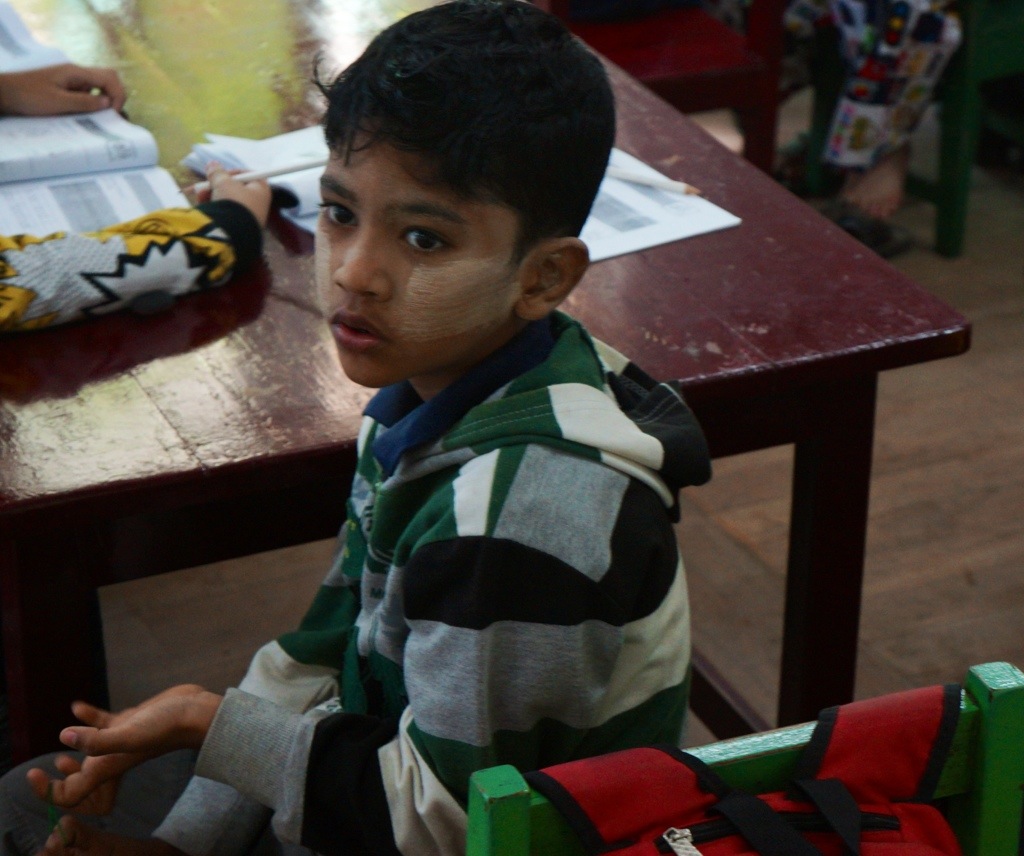
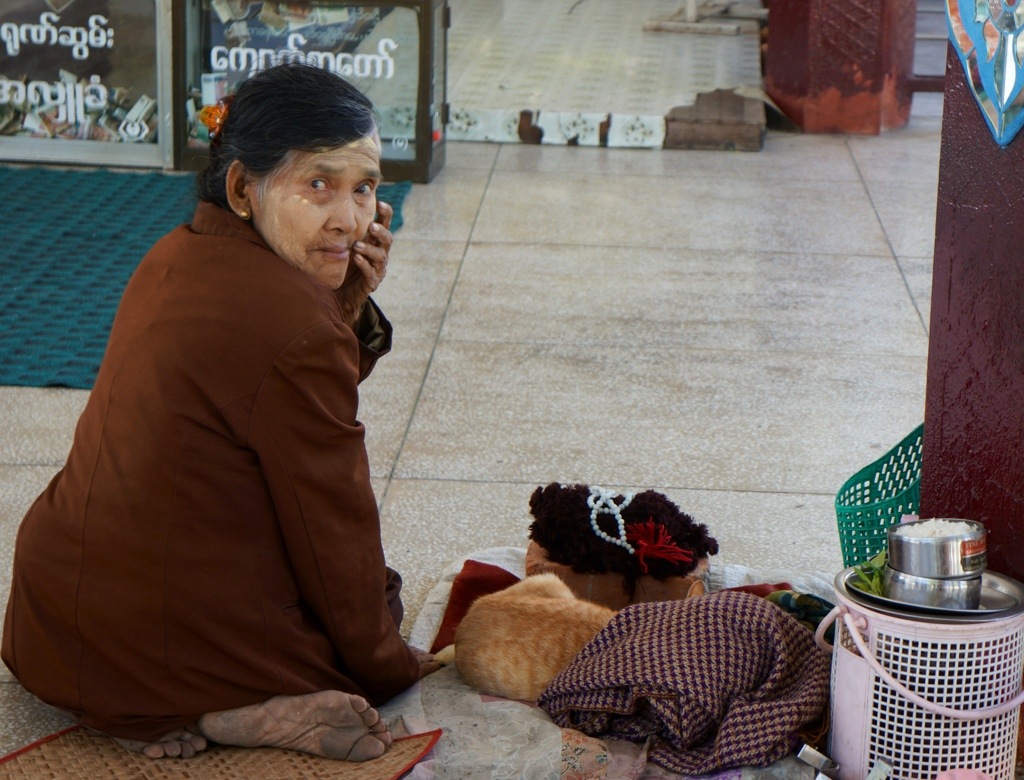
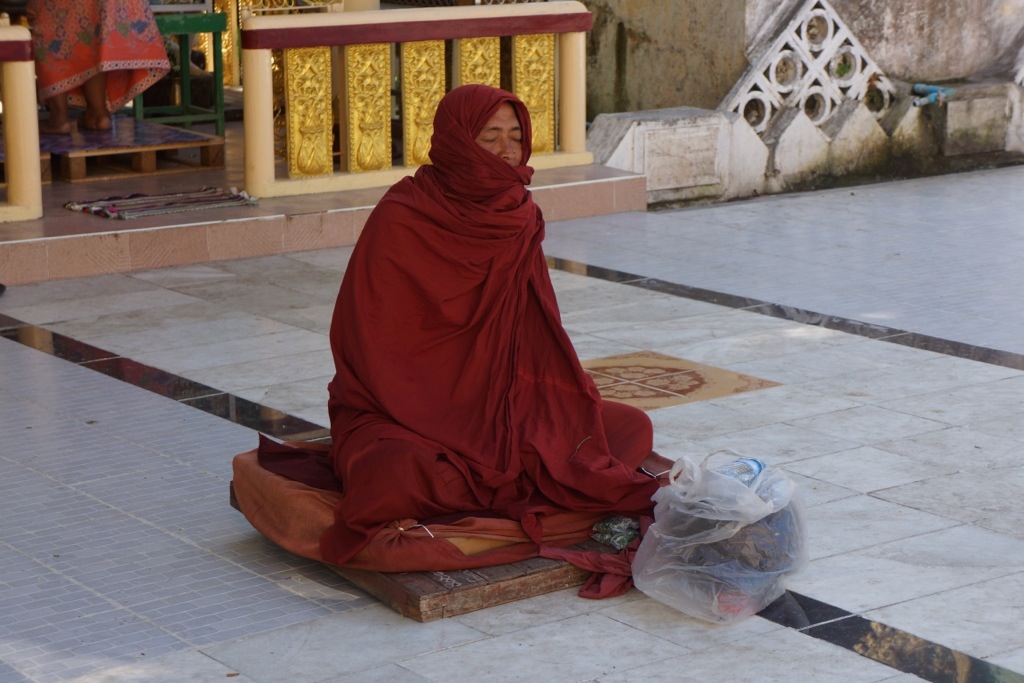
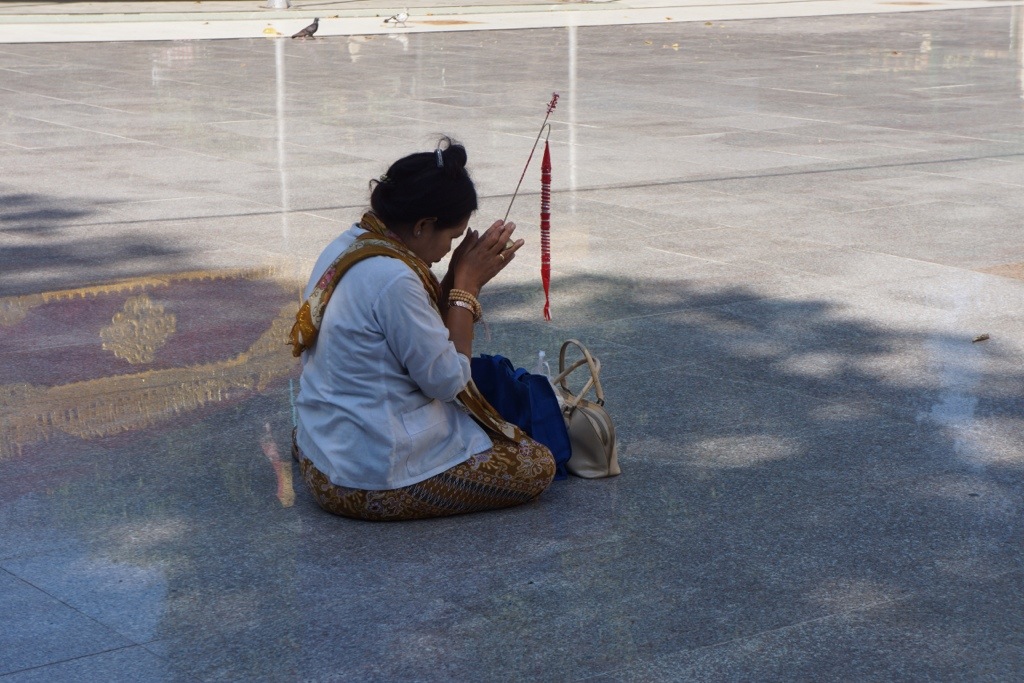
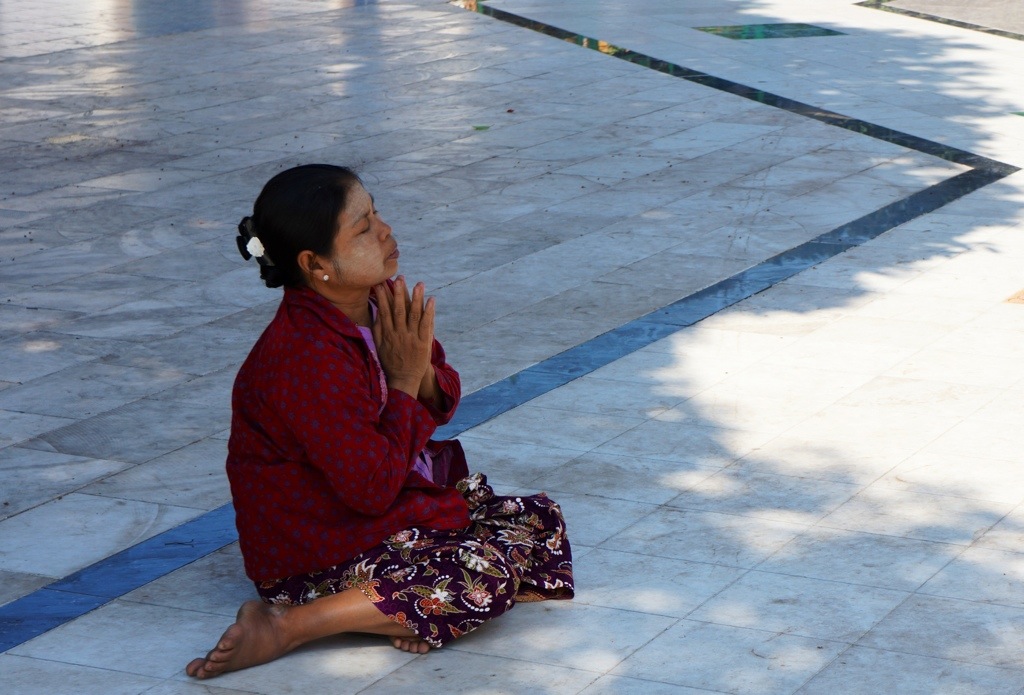


Leave a Reply